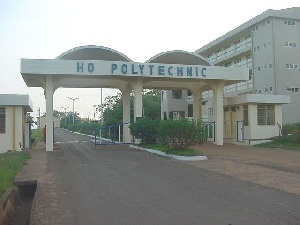Government could spend as much as GH¢9,000 as the unit cost for training students in the technical universities it intends to turn the country’s ten polytechnics into; that is, if it heeds the advice of the technical committee working on the conversion.
In a report submitted to the Education Minister earlier this month, the committee estimated that if the student population in the polytechnics grows from 53,000 to 60,000 in the next couple of years, the minimum recurrent cost to government in converting the polytechnics to technical universities would be GH¢540million per annum for the next three years.
The committee described technical university training as being “expensive”, indicating that realisation of the objectives would be dependent on how well-funded the upgraded institutions are.
"Adequate funding for the converted polytechnics is a critical challenge that must be addressed by the government, policy implementers, and leaders of the polytechnics aspiring to technical university status," the report stated.
Citing Germany, for example, the committee said the German government spends an amount of €5,000 -- €7200 (or the equivalent of about GH¢15,000 -- GH¢ 21,000) on every student in a university of applied sciences per year.
"Currently, the Government of Ghana spends less than GH¢3,000 on a student in a polytechnic per year. The huge gap between the current and optimal funding levels will have to be bridged if the quality of training in the converted polytechnics is to be comparable to international standards," the report added.
In 2014, the polytechnics were allocated only GH¢150,571,282 out of a budget request of GH¢325,547,304 -- leaving a funding gap of 54 percent. With a combined student population of 53,078, the amount that government spends on a polytechnic student per year is only GH¢2,836.
This amount, the committee said, may be compared with the euro equivalent of about GH?18,000 (on the average) that the German government spends on a student attending a University of Applied Sciences.
For quality skills training in the future, the committee recommended that the recurrent budgetary allocation to the converted polytechnics be at a level that corresponds to at least 50 percent of the unit cost for training students at similar institutions in Germany.
It added that the unit cost for training students in the technical universities should be at least GH¢9,000.
Assuming that the student population in the polytechnics grows to 60,000 in the next couple of years, the minimum recurrent cost to government in converting the polytechnics to technical universities is estimated at GH¢540million per annum for the next three years.
Government in 2016 will convert all the ten polytechnics into technical universities in a bid to make them offer more practical programmes to develop middle-level manpower to facilitate development.
Dr. George Afeti, Executive Secretary, National Inspectorate Board who is the Chairman of the Committee, said the Ministry of Education should ensure that funding allocations to the converted polytechnics are commensurate with their status as technical universities.
General News of Wednesday, 14 January 2015
Source: B&FT
Technical varsities to cost Ghc540 million annually
Opinions












